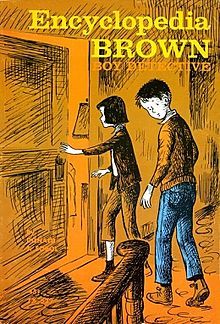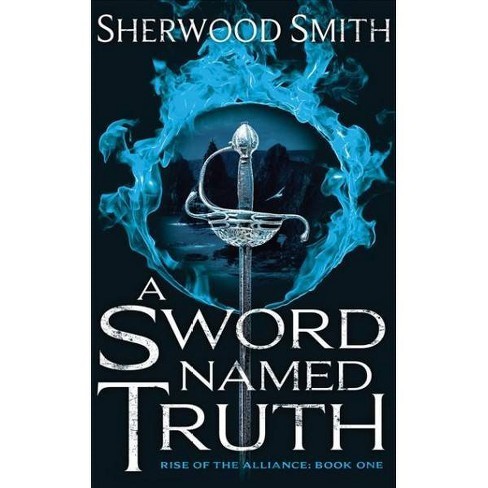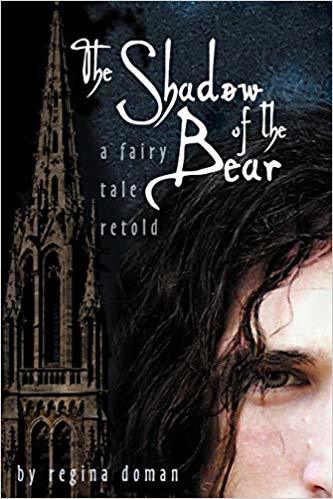Rachel Neumeier's Blog, page 197
June 6, 2019
What would English look like if it used German grammar?
This was a question asked on Quora. Sombody named Ivan Andreev wrote the most fantastic answer, which I will now share with you here.
Have you geheard, we should to the German Grammar overswitch? That have i already yesterday gemade. The German Grammar could, itself tofirst, strange sound, but you will perhaps discover that it not so difficult is. It is yes only a Matter of Wordorder… wait but. Have i “geheard” gesaid? I estimate once, that there also other Factors be could.
Firstens, the Verbs. The Present Perfect in English is not the same as the Perfekt Timeform on German. On German, corresponds she to the Simple Past on English, in the last Years becomes but also increasingly employed in order all past Forms to indicate. The perfective Aspect, on German, is with the Gerundform geformed. So, now say we Things so like “gefound” and “geshopped” and “atgelooked”.
Wait, “atgelooked”? Right. Whereas on the old Language, we Things “looked at”, now we Things “atlook”. This is a separable Verb, so the Gerundmarker becomes in the Word insidegeinserted.
Secondens, the Nouns. Each has a grammatical Gender, and it must with the Pronouns match in anaphoric Situations (in this Answer, i want it to avoid, new Morphemes to withupcome, or from the Old English to borrow: so it’s called the Phrase, not þēos Phrase, is but still toreferred as she).
If one with the Goal operates, new Words not towardstoadd, and the existing Inflections to reuse (“in the last Years”, not “in the lasts Years”, because the adjectival Plural unmarked in English is), then are we already more or less there. Some Littlehoods remain: Questionwordorder, Compoundnouns, certain Verbconjugationdetails and a few more, but in the Principle should you on Denglish communicate can. Much Luck!
I knew nothing about German except you capitalize the nouns. Now I know a little more! If you’re on Quora already, you may want to follow this guy. I sure did, because that answer is not just informative and fun, it’s just plain cleverly written.
Please Feel Free to Share:









Game of Thrones through the lens of the Myers-Briggs test
I know, I KNOW. Myers-Briggs is basically like astrology, only with more science-y trappings. But (a) it’s fun; and (b) it seems to fit lots of people pretty well,* so hey.
This is a Book Riot post: Your guide to Game of Thrones Myers-Briggs personality types
I’m not that familiar with all the characters in Game of Thrones. I read the first three or four books, stopped, never started again, and haven’t watched any of the TV series. Nevertheless, here we go. I’m INTJ, so let’s just see who that is supposed to be. …
INTJ – THE MASTERMIND: PETYR BAELISH
INTJs are known for being self-sufficient, preferring to work on their own toward whatever their goals are. And who is more self-sufficient than Petyr Baelish, the man who attempted to play everyone in Westeros in order to get his way? And while Littlefinger’s plans didn’t always pan out the way he wanted them to, the fact that the man was so dedicated to forming plans and playing out life like a game of chess makes him a perfect example of an INTJ Meyers-Briggs personality type.
Okay, the post is making a plausible case, I suppose. I don’t actually remember meeting this character. Was he around in the first three or four books? Let me go look for characters I do remember. For example, Jaime. Ah, here we go:
ESTP – THE DOER: JAIME LANNISTER
Much like their nickname would suggest, ESTPs don’t think, they do. Certainly this makes Jaime Lannister, a man of action, a great example of an ESTP. Look, when Bran caught Jaime with Cersei in the tower, Jaime didn’t think; he just tossed the boy out of a window. ESTPs live for the moment and want to see immediate results; as such, they can be a little spontaneous, not considering what consequences their actions might have further down the line. ESTPs aren’t total dummies, however; they’re great at talking to people and getting what they want from others. And like Jaime, ESTPs tend to be seen as stylish and attractive.
Spontaneous. Uh huh. That’s certainly the term that springs to mind for someone who tosses a little kid out of a high window in order to hide his incestuous relationship with his sister. Spontaneous.
I actually stopped reading the Game of Thrones series because it seemed to me that Martin was trying to rehabilitate Jaime in the eyes of the reader, and I wasn’t having it. I understand Jaime was presented as not quite as evil in the tv series (although still pretty much evil).
Okay, as a plus, having read this post, I know now who wound up as high king. Hmm. Not who I picked for Most Likely To Become High King when I was actually still reading the series. (I picked Tyrion).
*I know, the same could be said of astrology.
Please Feel Free to Share:









Typos: always interesting to see what people catch
Thank you very much, everyone who’s already read Door Into Light and sent me a list of typos you picked up. That’s Pete Mack, Robert, and Elaine T. Thanks, everyone!
For the record: Elaine caught seven typos plus one that wasn’t a typo, though perhaps ill-advised. I used the word “descene” to refer to a fictional musical scale, but the word sounds too real, I guess, because two people so far have told me they don’t think it’s correct. I should perhaps have used a more obviously made-up word or stuck in a sentence to indicate that it’s a made-up word. Well, maybe eventually, but so far I’m just leaving it alone.
So, that was seven typos.
Robert also caught seven typos. How many were the same as those Elaine caught? One.
Pete Mack noted two typos. How many repeats? Again, just one.
It is a source of continual amazement to me how (a) I can miss obvious typos, and (b) readers can and do detect such different lists of typos.
These are generally excruciatingly obvious typos. Wrong verb tense, missing word, wrong pronoun, and/or wrong character — in one case Nemienne says something when she wasn’t present in the scene; in one case Kerah closed his eyes (!) when it should have been Taudde — stuff like that. And only in ONE case did all three people catch the same egregious mistake! It’s remarkable.
Well, between the three of you, I hope I’ve got rid of ALL the typos in Door Into Light. I’m updating the files to KDP today, so in a day or two the corrected versions should be going out.
And yes, I feel compelled to check chapter 18, just to make SURE that it is the real chapter 18 and not a repeat of chapter 17.
Please Feel Free to Share:









June 5, 2019
When to let a story die
Here’s an interesting post by P J Parrish at Kill Zone Blog: When is it time to let a story idea die?
We have a special First Page Critique to talk about today. Because I think it is a splendid example of a question all writers have to ask themselves at one time or another: When it is time to let go of a bad story? I’ll be back in a second with my comments. First, here’s our submission: …
First page follows.
Then, as you might have expected, this reveal:
Okay, I’m messing with you here. This is an opening for one of my own books, unpublished. Kelly and I wrote this (in fact, we wrote the entire 367-page manuscript) years ago, when we were well along into our Louis Kincaid series. We wanted to try our hand at a female protag and a style that was lighter and humorous. Also, Kelly had decades of experience in the Nevada casino business and we figured we couldn’t go wrong.
Wrongo, keno-breath.
We couldn’t sell this book to save our souls.
Following, an interesting discussion of what the authors decided had gone wrong and the factors they considered when deciding whether to press on or let it go.
Interesting tidbits from the post:
Sometimes, bad ideas can birth new life. Michael Chabon abandoned his novel titled Fountain City after 1,500 pages, but then used it as inspiration for his fabulous Wonder Boys. John Cheever wrote 150 pages of a novel called The Swimmer, then decided it was better as a 12-page short story.
I am still blinking at both of these examples. Wow.
Granted, my original unpublishable 1500 page trilogy was the one I turned into Winter of Ice and Iron and The White Road of the Moon.
I will note in passing, but in boldface, that the hardcover of White Road has been marked down to $4.99 on Amazon, half the price of the Kindle ebook. Don’t know whether that will last, but just in case you’re interested.
Anyway, I can think of one half-completed (or, given that I write long, 1/3 completed) manuscript that I have on my hard drive that I really think is terrible. It’ll never go anywhere. I like one specific plotline that I could totally pull out and use for something else someday, but as for the rest of it, I might as well delete the 150 pages or whatever now.
Please Feel Free to Share:









Wow: medical technology
Sewn on to the heart, the 3cm (1in) by 2cm patch, grown in a lab from a sample of the patient’s own cells, then turns itself into healthy working muscle.
It also releases chemicals that repair and regenerate existing heart cells.
That’s amazing. What a science-fiction technique.
Trials in human patients are supposed to start in a year or two. Offhand I’d say that if I were having a heart problem, I’d volunteer right this minute.
Please Feel Free to Share:









June 4, 2019
Found: 200-year-old chess piece
This is the sort of object you’d like to find in one of your own drawers, but never will: Long-lost Lewis chessman found
A medieval chess piece that was missing for almost 200 years had been unknowingly kept in a drawer by an Edinburgh family.
They had no idea that the object was one of the long-lost Lewis Chessmen – which could now fetch £1m at auction.
The chessmen were found on the Isle of Lewis in 1831 but the whereabouts of five pieces have remained a mystery.
The Edinburgh family’s grandfather, an antiques dealer, had bought the chess piece for £5 in 1964.…
I could not figure out what kind of piece this was, but luckily the article finally says it’s a “warder” — what in America we call a rook. My first guess was bishop, and even now I only can tell the figure is holding a sword because the article says so. My eye read the sword as the edge of a book, which is why I guessed bishop.
Pictures at the link.
Please Feel Free to Share:









Don’t tell me about physics
When creating a dragon, I’m not interested in hearing about the square-cube law.
However, even I must admit that this post by James Nicholl at tor.com is interesting: Light sales in science and fiction.
Light bouncing off a mirrored surface does not exert much force. A light sail one square kilometre in area, located at 1 AU , would experience about 8 newtons of force from the sunlight bouncing off it. 8 newtons is about the force two blocks of butter would exert on your hand as you held them up against gravity. Still, small forces for very long times can provide surprisingly large delta-vs. This eight newtons/kilometre squared is free and available for as long as the sun shines. Wikipedia is kind enough to provide some idea of the potential this offers:

I’m a sucker for tables. This one is pretty snazzy. Mars really isn’t that far away considering it used to take up to 100 days to sail from Europe to America (if the weather was awful). Look how low the tonnage is, though! You’re not moving much of a ship with those sails.
Nicholl provides plenty of examples of SF using light sails. This anime example sounds like fun:
…in Yūichi Sasamoto’s Bodacious Space Pirates … Plucky schoolgirl-turned-privateer Marika Kato and her crew of equally plucky schoolgirl space-yacht-club members set out on the Odette II, a light sail craft with a dubious history. They thought that history was safely buried, never to return; this being an adventure series, they are proved wrong.
I guess to me it seems possibly more sensible to use other forms of propulsion, with light sails to provide supplementary or long-term push. But I have to say, if I were writing science fiction, I would certainly set real physics aside and use whatever magic physics worked best for the story — exactly as I allow dragons to soar through the skies using magic and ignoring the square-cube law.
Please Feel Free to Share:









June 3, 2019
Encyclopedia Brown
From Crime Reads, via The Passive Voice blog, this post that takes me back to my childhood:
Let me tell you about the most popular mystery author you’ve probably never heard of.
He sold 50 million of copies of his books worldwide. His work was translated into a dozen languages. The Mystery Writers of America gave him a special Edgar. The character he created became a cultural icon—spoofed by The Onion, the star of a short-lived television series, and the subject of a nasty lawsuit over the movie rights.
His name was Donald J. Sobol. He was World War II veteran and New York City native who moved to Florida in 1961. Two years later he created his “Sherlock in sneakers,” boy detective Leroy “Encyclopedia” Brown.
I didn’t remember the author’s name, but I certainly remember Encyclopedia Brown. How about you all? Anybody else remember the brilliant kid detective?
Forgetting the author and remembering the character — that would probably have suited the author:
“What I really wanted, and couldn’t achieve—it was just a pipe dream—was to remain anonymous,” Sobol once told his college alumni magazine. “That never worked.”
Interesting that he wanted that! Well, he didn’t manage the anonymity, but he did manage to create a memorable character, still popular today. I see his books are available in Kindle and the first one has 240 reviews. I even think I remember the cover:

The description reads: With a knack for trivia, Encyclopedia solves mysteries for the neighborhood kids through his detective agency. But his dad is also the chief of police, and every night, Encyclopedia helps him solve his most baffling crimes. Join Encyclopedia Brown as he solves ten confounding mysteries, including the theft of a diamond necklace, a bank robbery that happened in broad daylight, the case of the missing roller skates, and more.
If you’ve got a ten-year-old who might like mysteries, this would definitely be a good series to try.
Please Feel Free to Share:









A Sword Named Truth
Here’s a new book from Sherwood Smith:

I will say up front, it’s from DAW and it’s pretty darn pricey. The ebook is $14 and the hardcover is $28, and, well, sorry, but I’m not going to jump on it with both feet at those prices. But I’m curious about it.
Here’s part of the description:
Long-dormant magical forces are moving once again in Sartorias-deles. Agents of Norsunder, a mysterious bastion of incredible dark power, have reappeared in the world, amassing resources and sowing instability.
But with numerous nations led by young rulers brought too early to their thrones, the world is hardly ready to defend itself. Atan is still uncomfortable with her new queenship, gained after her country was freed from a Norsundrian enchantment that left it frozen outside time for a century. Senrid strives to establish rule of law, after deposing his brutal and cruel uncle, seeking to exert control over rebellious jarls and a distrustful military academy. Jilo never expected the responsibility of leading his nation, but when its dictator vanishes after a Norsundrian attack, Jilo finds himself stepping into the power void, taking the reins of a country so riddled with dark magic that its citizenry labors for mere survival. Clair and CJ lead a band of misfits against magical threats that overshadow their tiny country, including a direct incursion from the Norsundrians.
So this is the world of Inda, right? But I don’t remember any of these characters except Senrid. Am I supposed to? Does anybody else recognize these names?
I really liked and admired the five-book Inda series. I’m adding this new one to my wishlist so I don’t forget about it.
Please Feel Free to Share:

If Narnia is you favorite series ever, what should be next?
I know, I know, I failed to post anything last week. First I wasn’t at work land can’t post from home at this time of year; and second my parents had a parade of guests last week — many of my Dad’s siblings, who seldom visit because it’s a longish drive. Since Dad can’t travel any more, they came here. It was great to see them, but my scheduled posts ran out and my intentions to get into town long enough to put up more posts came to nothing.
But nothing like that should happen again until July, and at that point I’ll try to schedule more posts ahead.
Anyway! Here is a recent question on Quora that you might find interesting:
And the answer is, maaaayyybe, but fantasy novels that explicitly bring Christian themes front and center are, as you all might have noticed in a lifetime of reading SFF, rather rare. Also, if you want to stick to GREAT fantasy novels, well, that does kinda narrow things down.
Of course Tolkien drew heavily on Christianity, but those themes are hidden, not explicit, in the Lord of the Rings. However, I did take a few minutes to rack my brain for other examples where such themes are more explicit.
The story that came to mind, possibly because I read it fairly recently, was Regina Doman’s Shadow of the Bear. This is a contemporary retelling of the Snow White and Rose Red fairy tale. The current cover up on Amazon is dreadful. This one is much better:

Here’s the description: Once upon a time… In New York City, a young, secretive street tough who calls himself, Bear, lands on the doorstep of two teenaged sisters. On the one hand Rose is delighted with his surprising knowledge of literature, poetry, and music; on the other hand Blanche is afraid of his apparent connections to drugs, murder, and a hidden treasure. Even as Blanche learns to trust him, her fears that Bear’s friendship threatens their family prove terrifyingly true.
That’s pretty accurate! If you’re at all fond of the Snow White and Rose Red fairy tale, Doman managed to stay quite startlingly close to the original given the contemporary NYC setting. A very strong Catholic influence definitely pervades the story, which is, if not great literature in the Narnia sense, certainly well written. I enjoyed the story quite a bit.
This was my initial thought on the question. If any of you have other novels — perhaps more decidedly in the fantasy genre — perhaps you might drop them in the comments, along with a thumbs-up/thumbs-down reaction.
Please Feel Free to Share:












